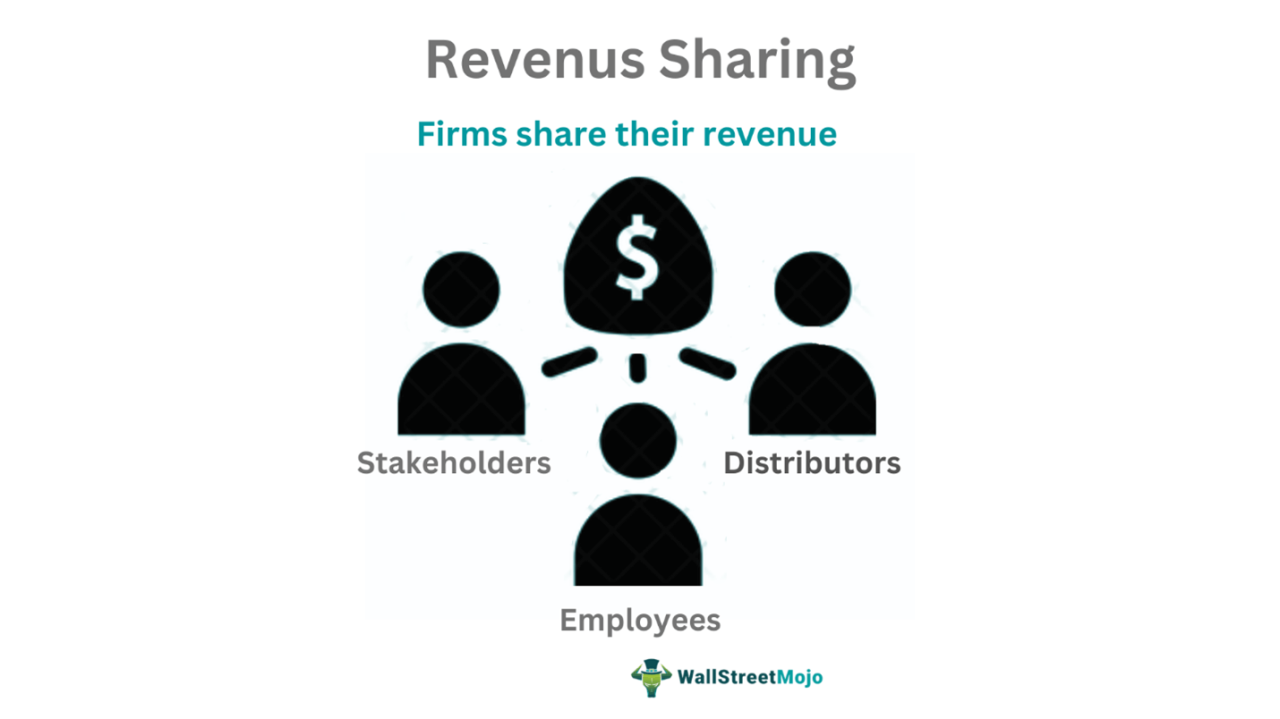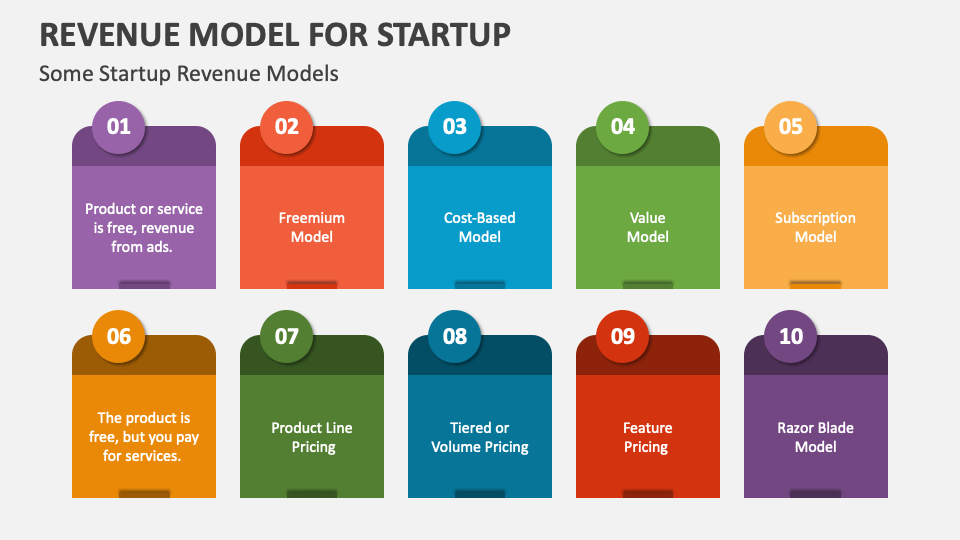How to Build a Revenue-Sharing Model for Your Digital Startup

Exploring the intricacies of creating a revenue-sharing model for your digital startup, this introduction sets the stage for a comprehensive discussion on the topic. With a blend of informative insights and practical advice, readers will gain valuable knowledge on establishing a successful revenue-sharing framework for their ventures.
Diving into the nuances of revenue-sharing models, this guide will equip you with the necessary tools and strategies to navigate this crucial aspect of startup growth.
Understanding Revenue-Sharing Models
Revenue-sharing models in the context of a digital startup involve distributing a portion of the revenue generated from the business among different parties involved in its operations. This can include partners, affiliates, content creators, or other stakeholders who contribute to the success of the startup.Implementing a revenue-sharing model for a startup can offer several benefits.
It can incentivize partners and collaborators to work towards the common goal of increasing revenue, as they directly benefit from the success of the business. This can help in fostering stronger relationships and collaborations within the startup ecosystem. Additionally, revenue-sharing models can provide a flexible and scalable way to compensate contributors based on their performance and contribution to the business.
Examples of Successful Digital Startups with Revenue-Sharing Models
- YouTube: YouTube's Partner Program allows content creators to monetize their videos through ads and other revenue streams. YouTube shares a portion of the ad revenue with the creators, incentivizing them to produce high-quality content and grow their audience.
- Airbnb: Airbnb operates on a revenue-sharing model where hosts receive a percentage of the booking fees for renting out their properties. This incentivizes hosts to provide excellent service and maintain the quality of their listings, contributing to the overall success of the platform.
- Uber: Uber's drivers participate in a revenue-sharing model where they receive a percentage of the fare for each ride. This motivates drivers to provide good service, maintain high ratings, and increase their earnings by taking on more rides.
Designing Your Revenue-Sharing Model

When designing a revenue-sharing model for your digital startup, it's essential to consider the different types available, compare them to other funding models, and tailor the model to fit your specific needs.
Types of Revenue-Sharing Models
There are various revenue-sharing models you can consider for your digital startup:
- Equity-Based Revenue Sharing: Involves sharing profits with investors in exchange for equity in the company.
- Royalty-Based Revenue Sharing: Involves paying a percentage of revenue to investors or partners based on sales or other metrics.
- Subscription-Based Revenue Sharing: Involves sharing recurring revenue from subscriptions with investors or partners.
Pros and Cons of Revenue-Sharing Models vs. Other Funding Models
- Pros of Revenue-Sharing Models:
- Less financial risk for the startup as payments are tied to revenue.
- Potential for long-term partnerships with investors or partners.
- Aligns the interests of investors with the success of the startup.
- Cons of Revenue-Sharing Models:
- Can be more expensive in the long run compared to traditional loans.
- May limit the ability of the startup to reinvest profits back into the business.
- Potential for disagreements over revenue calculations and distributions.
Tailoring Your Revenue-Sharing Model
Consider the following when tailoring a revenue-sharing model to fit your startup's needs:
- Understand your revenue streams and projections to determine a fair revenue-sharing percentage.
- Define clear terms and conditions regarding revenue calculations, distributions, and investor/partner expectations.
- Consider the impact of revenue-sharing on your cash flow and ability to scale the business.
Implementing Revenue Distribution Mechanisms
Implementing a fair revenue distribution mechanism is crucial for the success and sustainability of your startup. By ensuring that all stakeholders receive their fair share of revenue, you can foster trust and collaboration within your ecosystem.To calculate and allocate revenue shares accurately, you need to first establish clear guidelines and criteria for revenue distribution.
This can include factors such as the level of contribution of each stakeholder, the value they bring to the business, and any specific agreements or contracts in place.
Establishing Fair Revenue Distribution
- Define clear revenue-sharing agreements: Clearly Artikel the terms of revenue distribution in contracts or agreements signed by all stakeholders.
- Use performance metrics: Implement performance metrics to track the contribution of each stakeholder and allocate revenue shares accordingly.
- Regularly review and adjust: Continuously review your revenue distribution mechanisms to ensure they remain fair and equitable as your business grows.
Automating Revenue Distribution Processes
- Utilize revenue-sharing software: Consider using specialized revenue-sharing software like Tipalti or PartnerStack to automate the calculation and distribution of revenue shares.
- Integrate with accounting systems: Integrate your revenue distribution mechanisms with your accounting systems to streamline the process and reduce manual errors.
- Provide real-time reporting: Implement tools that offer real-time reporting on revenue distribution to keep all stakeholders informed and transparent.
Ensuring Legal Compliance

When setting up a revenue-sharing model for your digital startup, it is crucial to ensure legal compliance to avoid any potential disputes or legal issues down the line. This involves identifying key legal considerations, establishing clear contracts and agreements, and protecting intellectual property rights within the revenue-sharing framework.
Key Legal Considerations
- Understand the legal implications: Before finalizing your revenue-sharing model, it is essential to consult with legal experts who can help you navigate the legal landscape and ensure compliance with relevant laws and regulations.
- Tax implications: Revenue-sharing arrangements may have tax implications, so it is important to understand the tax laws in your jurisdiction and ensure that your model is structured in a tax-efficient manner.
- Compliance with data protection laws: If your digital startup collects and processes user data, you must comply with data protection laws such as GDPR to safeguard user privacy and avoid legal consequences.
Importance of Clear Contracts and Agreements
- Establishing clear contracts: Clear and detailed contracts are essential in revenue-sharing arrangements to Artikel the rights and obligations of each party involved, reducing the risk of misunderstandings or disputes.
- Defining revenue-sharing terms: Contracts should clearly define the revenue-sharing terms, including how revenue will be calculated, distributed, and reported to ensure transparency and accountability.
- Dispute resolution mechanisms: Contracts should also include provisions for dispute resolution mechanisms in case conflicts arise, allowing parties to resolve issues amicably without resorting to costly legal battles.
Protecting Intellectual Property Rights
- Identify intellectual property: It is important to identify and protect any intellectual property rights associated with your digital startup, including trademarks, copyrights, and patents, to prevent unauthorized use or infringement.
- Include IP clauses in contracts: Contracts should include clauses that address intellectual property rights, specifying how IP will be protected, licensed, or shared within the revenue-sharing model to avoid disputes over ownership or misuse.
- Implement confidentiality measures: To safeguard sensitive information and trade secrets, consider implementing confidentiality measures within your revenue-sharing agreements to protect your startup's valuable intellectual property.
Closing Notes

In conclusion, developing a revenue-sharing model for your digital startup requires careful planning, thoughtful consideration, and a keen understanding of your business goals. By implementing the right strategies and staying informed on best practices, you can pave the way for sustainable growth and success in the competitive digital landscape.
Q&A
What is a revenue-sharing model?
A revenue-sharing model in the context of a digital startup involves distributing profits among stakeholders based on predetermined terms and agreements.
How can I tailor a revenue-sharing model to suit my startup's needs?
Customizing a revenue-sharing model involves assessing your business requirements, stakeholder expectations, and revenue goals to create a framework that aligns with your specific circumstances.
What legal considerations are important when setting up a revenue-sharing model?
Key legal aspects include drafting clear contracts, defining intellectual property rights, and ensuring compliance with relevant regulations to protect all parties involved in the revenue-sharing arrangement.






